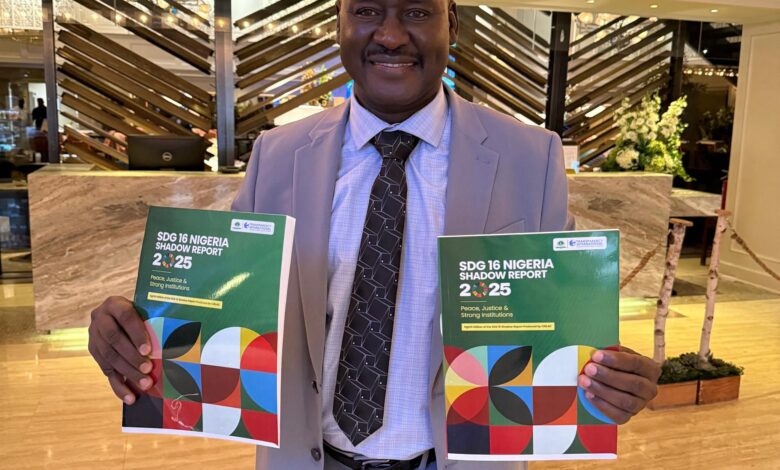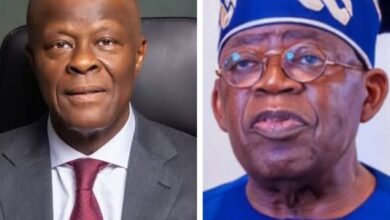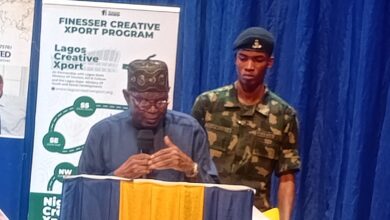CISLAC’s UN side event presentation on SDG16 Shadow report in New York

SPEECH BY COMRADE AUWAL IBRAHIM MUSA (RAFSANJANI), EXECUTIVE DIRECTOR, CISLAC/HEAD, TRANSPARENCY INTERNATIONAL NIGERIA, AT THE LAUNCH OF THE 8TH NIGERIA SDG 16 SHADOW REPORT
UN GENERAL ASSEMBLY SIDE EVENT, NEW YORK, SEPTEMBER 25, 2025
Distinguished guests, colleagues, members of the press, ladies and gentlemen,

It is an honour to stand before you today on behalf of the Civil Society Legislative Advocacy Centre (CISLAC), the national chapter of Transparency International in Nigeria, as we launch the 8th edition of the Nigeria SDG 16 Shadow Report.
This report, covering July 2024 to August 2025, is themed “Leaving No One Behind: Anti-Corruption, Right to Information, and Justice for All.” It provides our independent assessment of Nigeria’s progress, and in many areas setbacks, in meeting Sustainable Development Goal 16, which is dedicated to peace, justice, and strong institutions.
CISLAC and TI Nigeria express our profound gratitude to the TI Secretariat in Berlin for their technical and strategic support in realizing this shadow report.
Persistent Governance Challenges
Our findings reveal stubborn governance challenges. Nigeria has made legislative and policy advances, but enforcement remains weak, often selective, and undermined by political interference. Institutions that should serve the people are too frequently captured for private or political gain.
A deeper concern is the entrenched culture of impunity among political leaders who refuse to declare their assets to the Code of Conduct Bureau, in clear violation of constitutional requirements. This disregard for accountability erodes public trust and undermines the ability of anti-corruption agencies to function effectively. Rather than leading by example, many political office holders divert taxpayers’ money to acquire luxury properties both within Nigeria and abroad, fueling illicit financial flows. Such lapses entrench corruption and create a dangerous precedent in which laws are applied selectively, shielding the powerful while ordinary citizens suffer the consequences of weak governance.
We also continue to witness asset recoveries carried out without transparent reporting or accountability. This lack of post-recovery tracking creates fertile ground for recycled corruption.
The erosion of institutional integrity compounds these challenges. The judiciary, security services, and electoral bodies — pillars of democracy — are increasingly viewed as compromised. Allegations against senior judicial figures, irregularities in the electoral commission, and inadequate vetting of political appointees show just how fragile our governance system has become.
Insecurity and the Ransom Economy
One of the most alarming issues highlighted in this year’s report is the scale of insecurity. Kidnapping for ransom has become commercialised. Between May 2023 and April 2024, over 2.23 million incidents of kidnapping were recorded in Nigeria. Ransom payments totalled ₦2.2 trillion, or about US$1.4 billion. This figure exceeds Nigeria’s entire defence budget for 2024 and reflects the privatisation of insecurity at the expense of national stability.
Troubling Realities Documented in the Report
• Whistleblower protections remain absent or non-functional.
• Procurement corruption and vote-buying are still pervasive.
• Campaign finance violations go largely unchecked.
• Nigeria scored just 31 out of 100 in the Open Budget Survey.
• The Open Treasury Portal is now inactive, reducing fiscal transparency.
• Compliance with the Freedom of Information Act stands at only 11.4%, despite a Supreme Court ruling affirming its applicability.
• Civic space continues to shrink, with protest repression and increased surveillance.
Real-World Illustrations
To bring these findings home, allow me to share three cases that demonstrate how corruption and impunity undermine institutions.
1. Whistleblower victimisation
The case of Mubarak Bello, a whistleblower in Katsina State, is emblematic. He exposed payroll fraud in the state police command, petitioning anti-corruption agencies with documented evidence. Instead of protection, he was arrested in September 2025 under dubious charges. His story demonstrates the risks faced by citizens who dare to challenge corruption in Nigeria.
2. UK Tribunal on property fraud
In the UK First-tier Tribunal, Chief Mike Ozekhome and his son, Osilama Mike Ozekhome, were implicated in an attempted transfer of property linked to General Jeremiah Useni. The court found that the supposed payment, described as a gift or compensation for legal services, was nothing more than an invention and contrivance. The judge rejected their application to register the property, ruling that the transfer was orchestrated by General Useni to conceal ownership. This case illustrates how legal actors themselves can be complicit in shielding illicit assets.
3. Alleged illicit properties abroad
We also note ongoing issues surrounding properties allegedly linked to the current Minister of the FCT, Nyesom Wike, in Florida, which demand urgent investigation. Reports indicate that he allegedly purchased three luxury lakeside properties worth millions of dollars in Winter Springs, Seminole County, Florida. These alleged acquisitions mirror a disturbing pattern in which political elites loot national resources at home and funnel them into real estate abroad. This further demonstrates how illicit financial flows drain Nigeria’s resources and entrench systemic corruption.
A Call to Action
As we approach 2030, the deadline for achieving the Sustainable Development Goals, Nigeria risks falling short not because of a lack of laws or institutions, but because of the absence of political will to implement them.
The 8th SDG 16 Shadow Report is both a mirror and a roadmap. It shows us where we stand, but also points us to what must change.
We therefore call on the Nigerian government, civil society, and our international partners to recommit, not just in words but in concrete action, to transparency, accountability, and justice.
Conclusion
Dear colleagues and members of the press, the path to national renewal lies in strong institutions, a protected civic space, and genuine respect for the rule of law. Only then can we truly ensure that no one is left behind.
Thank you.









